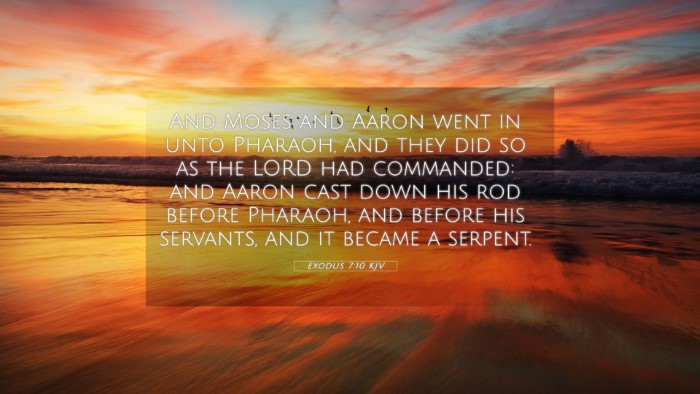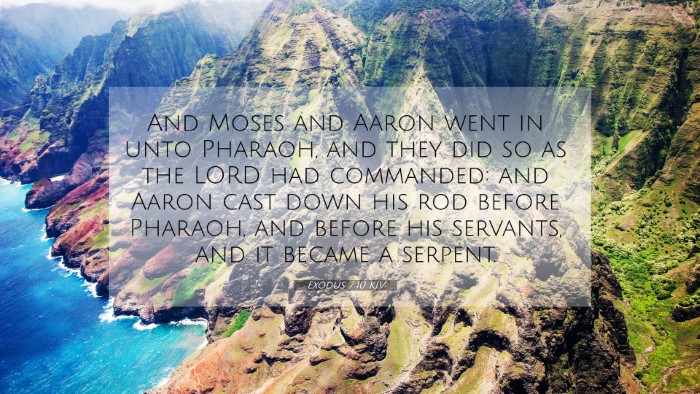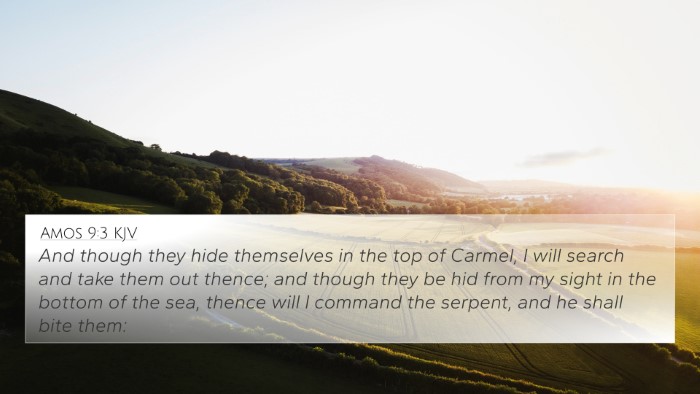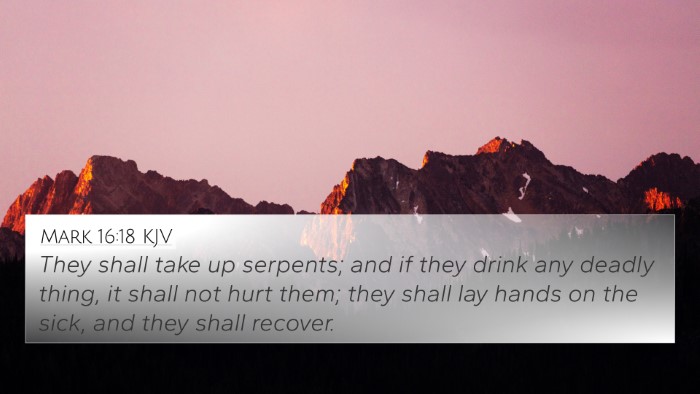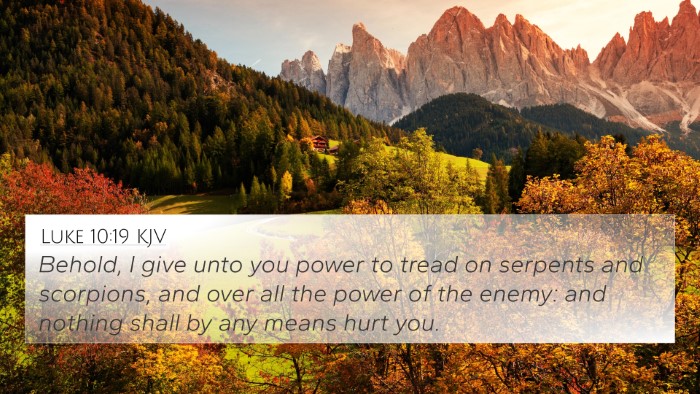Understanding Exodus 7:10
Exodus 7:10 states:
"So Moses and Aaron went in to Pharaoh, and they did so just as the Lord had commanded. And Aaron cast down his rod before Pharaoh and before his servants, and it became a serpent."
Verse Meaning
This verse marks a significant moment in the narrative of the Exodus, where Moses and Aaron confront Pharaoh, the ruler of Egypt, as commanded by God. The act of Aaron casting down his rod, which then turns into a serpent, demonstrates God’s power over Egyptian magicians and gods, establishing the authority of Israel’s God in a most dramatic fashion.
Commentary Insights
- Matthew Henry:
Henry emphasizes the obedience of Moses and Aaron in carrying out God's commands, showcasing their faithfulness and the gravity of their mission. The transformation of the rod into a serpent symbolizes the judgment upon Pharaoh and a demonstration of God’s might.
- Albert Barnes:
Barnes notes the significance of the rod as a symbol of authority, reflecting God’s power. He points out how this act not only serves as a sign to Pharaoh but also a warning of the plagues that would follow, serving as a call to repentance.
- Adam Clarke:
Clarke elaborates on the cultural context, explaining that serpents were objects of reverence in Egypt, further highlighting the confrontation between God and the Egyptian deities. He interprets this act as a challenge to the power and belief systems of the Egyptians.
Bible Cross-References
To deepen your understanding of Exodus 7:10, consider these related scriptures:
- Exodus 4:2-3: God instructs Moses regarding his rod turning into a serpent.
- Exodus 7:11-12: Pharaoh's magicians replicate the miracle but highlight God's supremacy.
- Numbers 21:9: The bronze serpent on a pole foreshadows Christ’s sacrifice.
- Matthew 10:16: Jesus sends his disciples as sheep among wolves, indicating the need for wisdom and discernment.
- 2 Timothy 3:8: A reference to Jannes and Jambres, the magicians opposing Moses, emphasizing the spiritual battle.
- Revelation 12:9: The serpent as a symbol of the adversary, linking to themes of temptation and opposition.
- John 3:14-15: Jesus likens Himself to the bronze serpent, connecting Old and New Testament themes of redemption through faith.
Thematic Connections
Exodus 7:10 is rich in themes relevant across the Scriptures. These include:
- Divine Authority: The demonstration of God's power validates His authority over earthly rulers.
- Obedience to God's Command: Moses and Aaron exemplify faithful obedience, a recurring theme throughout the Bible.
- Judgment and Mercy: The act signifies impending judgment towards Egypt yet highlights God’s call for repentance.
Conclusion
Exodus 7:10 serves as a pivotal verse within the Exodus narrative, illustrating the confrontation between divine power and pharaonic authority. The insights from public domain commentaries reflect the struggle between God's sovereignty and the natural order, reinforcing the necessity of faithfulness in the face of opposition. Understanding this verse and its connections enriches our study of the Bible, revealing deeper thematic structures and interrelationships among the Scriptures.
Using Bible Cross-References
Utilizing tools for Bible cross-referencing can significantly enhance your study. Methods include:
- Employing a Bible concordance to find verses related by theme.
- Using a Bible cross-reference guide during study sessions.
- Practicing cross-reference Bible study techniques to draw connections between verses.
- Identifying thematic Bible verse connections during sermon preparation.

